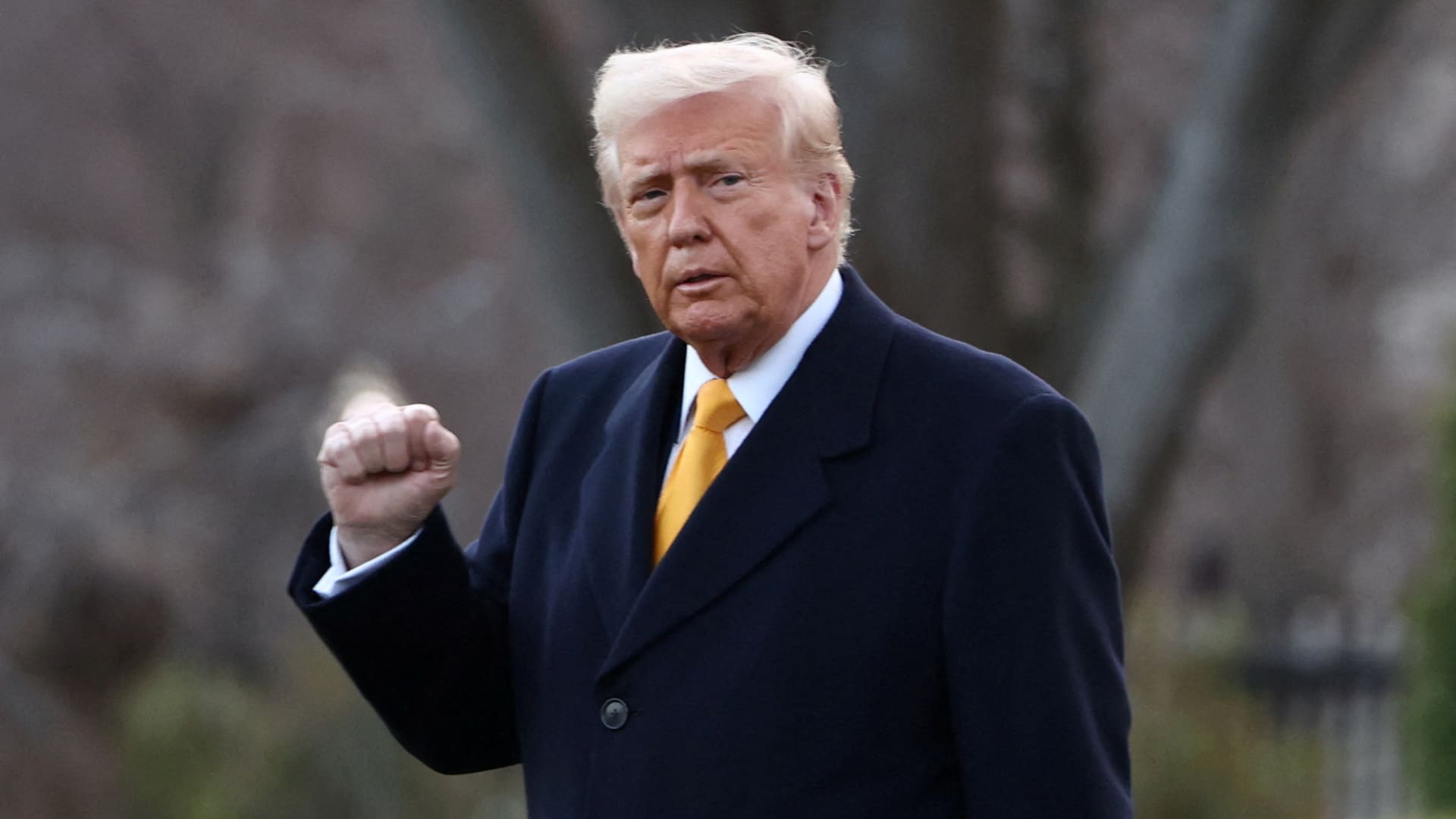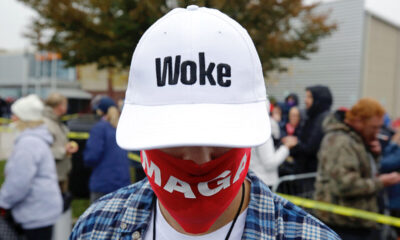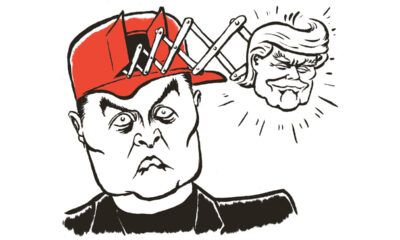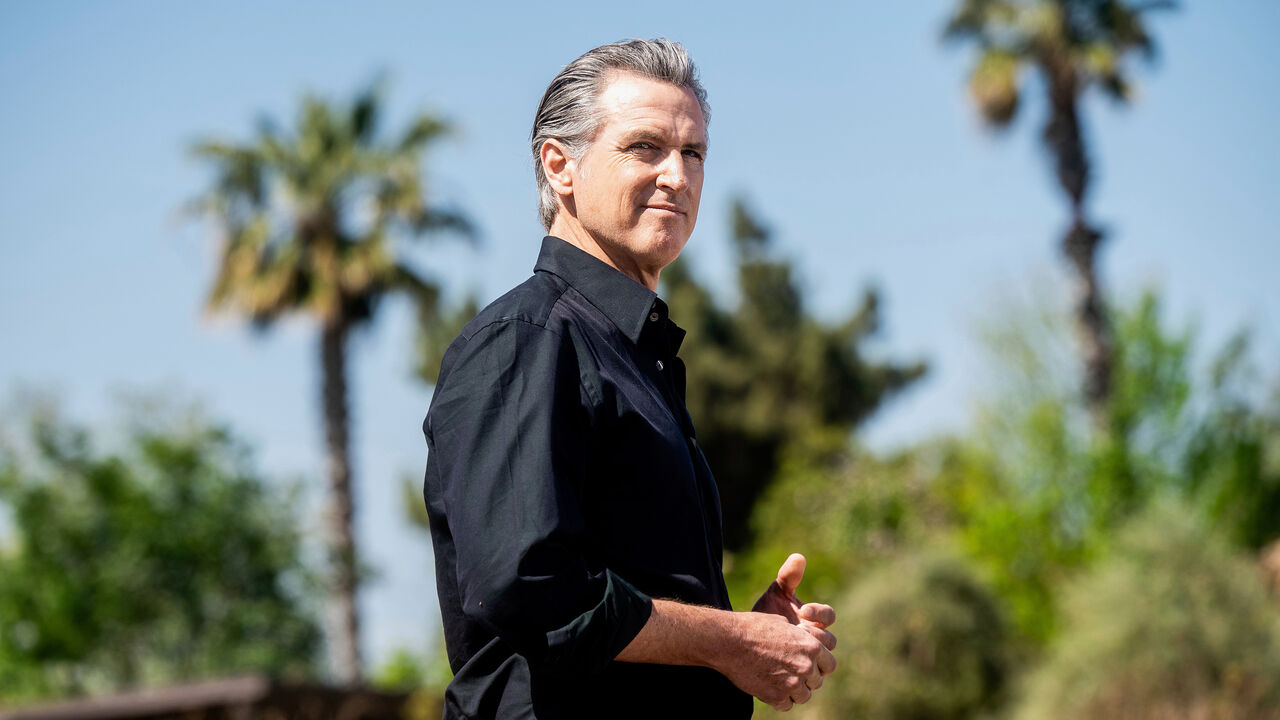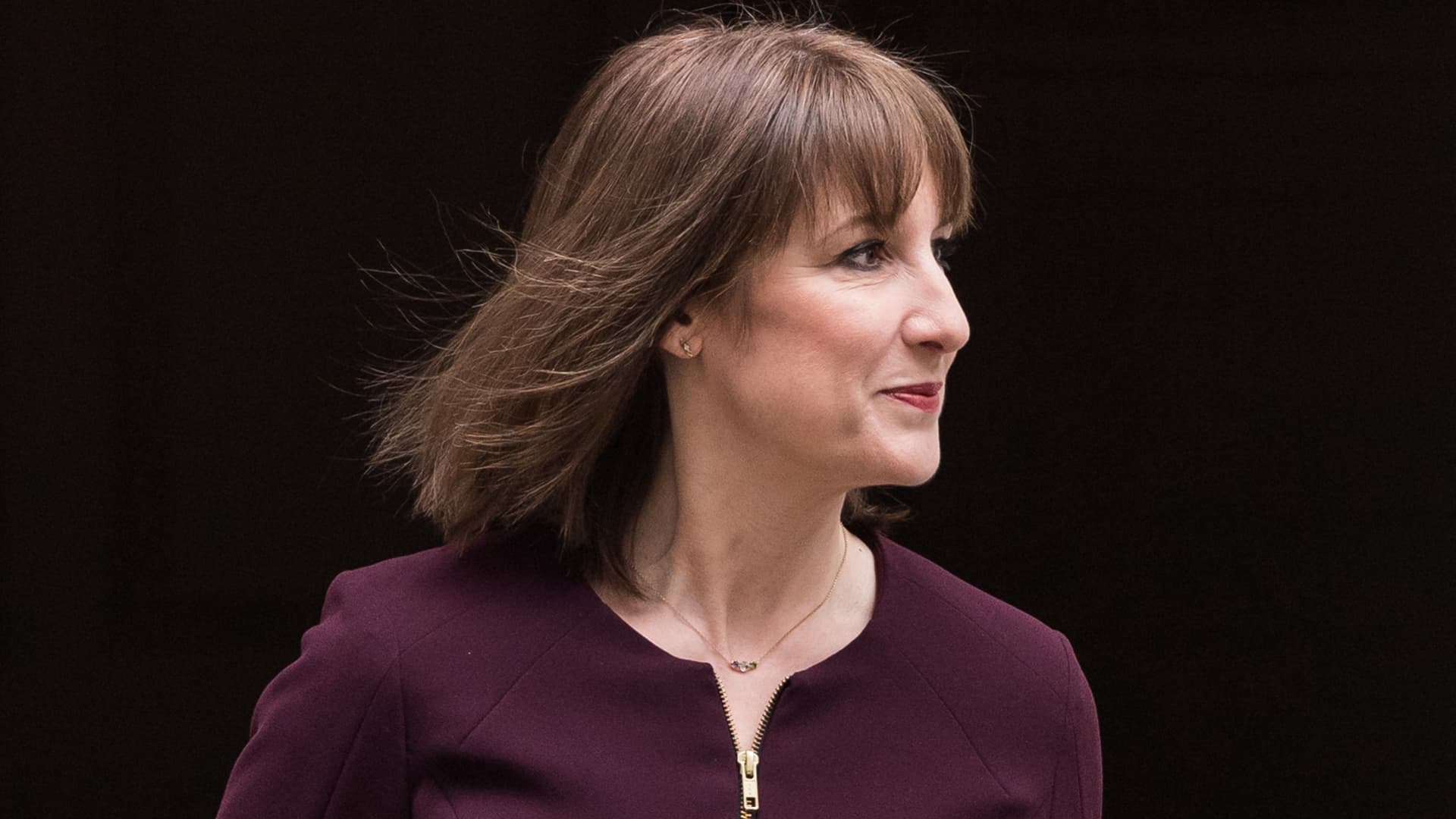U.S. President Donald Trump attends the White House Crypto Summit at the White House in Washington, D.C., U.S., March 7, 2025.
Evelyn Hockstein | Reuters
Global market volatility and geopolitical turbulence in the wake of President Donald Trump’s return to the White House have led to warnings that the U.S. economy could be heading for a recession — but economists say that a downturn isn’t in the cards just yet.
“I don’t think we will talk about a U.S. recession. The U.S economy is resilient, I would say, largely despite Donald Trump,” Holger Schmieding, chief economist at Berenberg Bank, told CNBC’s “Squawk Box Europe” on Monday.
Dubbing Trump an “agent of chaos and confusion,” Schmieding said the president’s “zigzagging on tariffs shows that he has little idea of the potential consequences of his tariff policies.”
Nonetheless, “U.S. consumers have money to spend, [and] they probably will. The labor market in the U.S. remains reasonably firm, and with energy prices coming down a bit and probably some tax cuts and deregulation coming, I don’t think there’s an imminent recession risk,” according to Schmieding.
“But what is becoming ever clearer in the long run, Trump is hurting U.S. trend growth, that is growth in the years beyond 2026. And he stands for higher prices for U.S. consumers, which means, in my view, the Fed [Federal Reserve] has no reason to cut rates with Trump as president, and Trump sowing chaos and confusion,” he noted.
CNBC has contacted the White House for a response and is awaiting a reply.
International stock markets have been rocked to their foundations in recent weeks amid fears that Trump intended to revive a global trade war after announcing hard-hitting import tariffs on goods from China, Mexico and Canada.
Confusion and uncertainty have followed, as the president last Friday announced that there would be a reprieve and delay to April 2 on some tariffs on the U.S.’ neighbors and closest trading partners.
Trump’s unconventional approach to trade and international diplomacy has left markets unimpressed, with U.S. indices whipsawing, while strategists warned that negative market sentiment was bound to continue in the Trump 2.0 era. U.S. stock futures fell earlier Monday morning, indicating another rocky ride for American markets at the start of the new trading week.
Business leaders and economists have voiced concerns that tariffs will lead to further inflationary pressures on the U.S., with consumers likely to bear the brunt of higher prices on imported goods.
They also warn that investment, jobs and growth could suffer, as consumers tighten their belts and hunker down to wait out a period of economic unpredictability and potential “stagflation” marked by high inflation and high unemployment.
That would put pressure on the Fed to keep interest rates on hold, rather than cutting from their current benchmark rate in a range between 4.25%-4.5%, in a bid to stimulate the economy. Lower interest rates can fuel more spending, and, in turn, inflation.
Fed Chairman Jerome Powell Friday said that the central bank can wait to see how Trump’s aggressive policy actions play out before it moves again on interest rates.
‘A period of transition’
Recent economic data showing consumer confidence has taken a hit in February will be food for thought for the Trump administration. The Federal Reserve Bank of Atlanta’s GDPNow tracker of incoming metrics indicated last week that the U.S. gross domestic product could shrink by 2.4% for the period between January and March. A technical recession is defined as taking place when at least two consecutive quarters log negative growth.
Last week’s jobs data also showed that while the U.S. labor market is still expanding, signs of weakness could also be starting to creep in. Nonfarm payrolls data indicated job growth was weaker than expected in February, albeit still stable despite Trump’s efforts to cut the federal workforce.
Nonfarm payrolls increased by a seasonally adjusted 151,000 on the month, exceeding the downwardly revised 125,000 of January, but coming in below the 170,000 consensus forecast from Dow Jones, the Labor Department’s Bureau of Labor Statistics reported Friday. The unemployment rate edged higher to 4.1%.
TS Lombard Chief U.S. Economist Steven Blitz said the latest jobs data “tell us the economy continues to grow” and did not signal “increased recession risks created by the array of Trump’s policies.”
In a note on Friday, he said “the sum of Trump’s actions can yet skew the economy in any which way, including an implosion of capital spending.”
“Keep in mind that presidents have been known to accept downturns in year one of their presidency. It is a free pass, they blame the previous president and take credit for the recovery. My base case is still growth and the Fed holding still. My base concern comes from the capital markets side, break trade and you will break the capital inflows that support the economy,” Blitz said.
U.S. President Donald Trump gestures as he walks to board Marine One, while departing the White House en route to Florida, in Washington, D.C., U.S., March 7, 2025.
Evelyn Hockstein | Reuters
Trump has refused to rule out the possibility of a recession this year, but insisted this weekend that the economy was in a “period of transition.”
Asked about the Atlanta Fed’s warning of an economic contraction by Fox News Channel’s “Sunday Morning Futures,” Trump seemed to acknowledge that his tariff plans could affect U.S. growth.
“I hate to predict things like that,” he said in an interview aired Sunday, when asked if the recession warning was a concern.
“There is a period of transition because what we’re doing is very big. We’re bringing wealth back to America. That’s a big thing.” The White House leader added, “It takes a little time. It takes a little time.”
JPMorgan’s U.S. Market Intelligence unit last week noted that the U.S. economy was entering “another period of uncertainty” given the unpredictable nature of tariffs. The analysts said they were taking a “bearish” position on U.S. stocks, expecting markets to see more volatility and for U.S. growth to potentially “crater.”
“We have already seen the negative impact that policy/trade uncertainty has had on both household and corporate spending, so it seems likely that we see a larger magnitude of this over the next month. Keep an eye on the unemployment rate, layoffs, WARN notices, etc. If we start to see the unemployment rate rising rapidly, then that likely which push the market back into the ‘Recession Playbook,'” JPMorgan noted.
While a U.S. recession was not the bank’s base case scenario, JPMorgan analysts warned that “the undetermined length of tariffs and the potential for the trade war to see an acceleration in new tariffs [means] we think stocks will be challenged as U.S. GDP growth estimates are cut.”
“Given the lack of a potential end to this escalation, the expectation is that tariffs of these magnitude with drive both Canada and Mexico into a recession. Look for U.S. GDP growth expectations to crater and for earnings revisions to be materially lower, forcing a re-think of year-end forecasts. With this in mind, we are changing our view to Tactically Bearish,” they noted.

 Economics1 week ago
Economics1 week ago
 Economics1 week ago
Economics1 week ago
 Economics6 days ago
Economics6 days ago
 Finance1 week ago
Finance1 week ago
 Blog Post7 days ago
Blog Post7 days ago
 Economics1 week ago
Economics1 week ago
 Personal Finance6 days ago
Personal Finance6 days ago
 Economics1 week ago
Economics1 week ago
